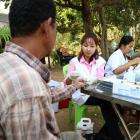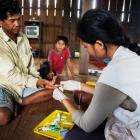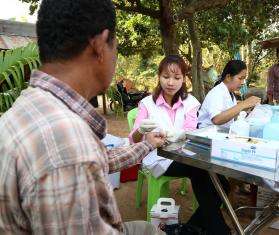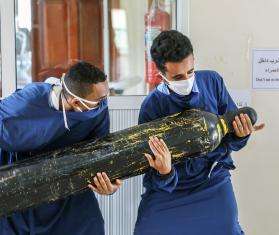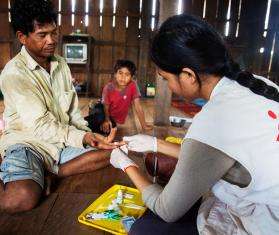The team started by screening HIV patients at the hospital for co-infection and expanded screening to include patients referred by Preah Kossamak hospital’s hepatology department.
Our malaria research project in northern Cambodia was set up to find ways to eliminate malaria in an area where there is proven resistance to the most powerful antimalarial drug, artemisinin. Our teams also responded to the coronavirus COVID-19 pandemic in the country between February and June 2020, in which training and technical support was provided in six hospitals.

